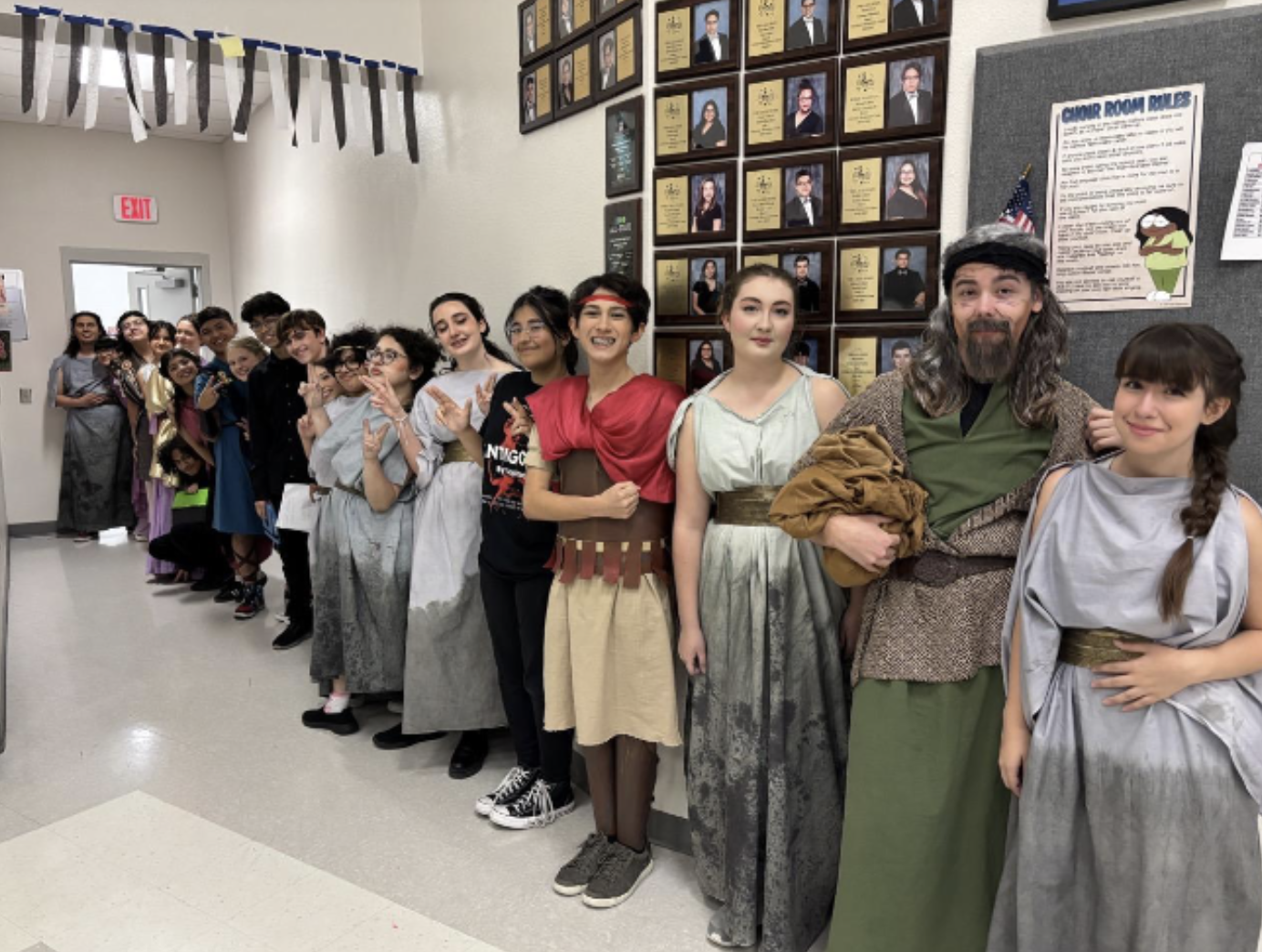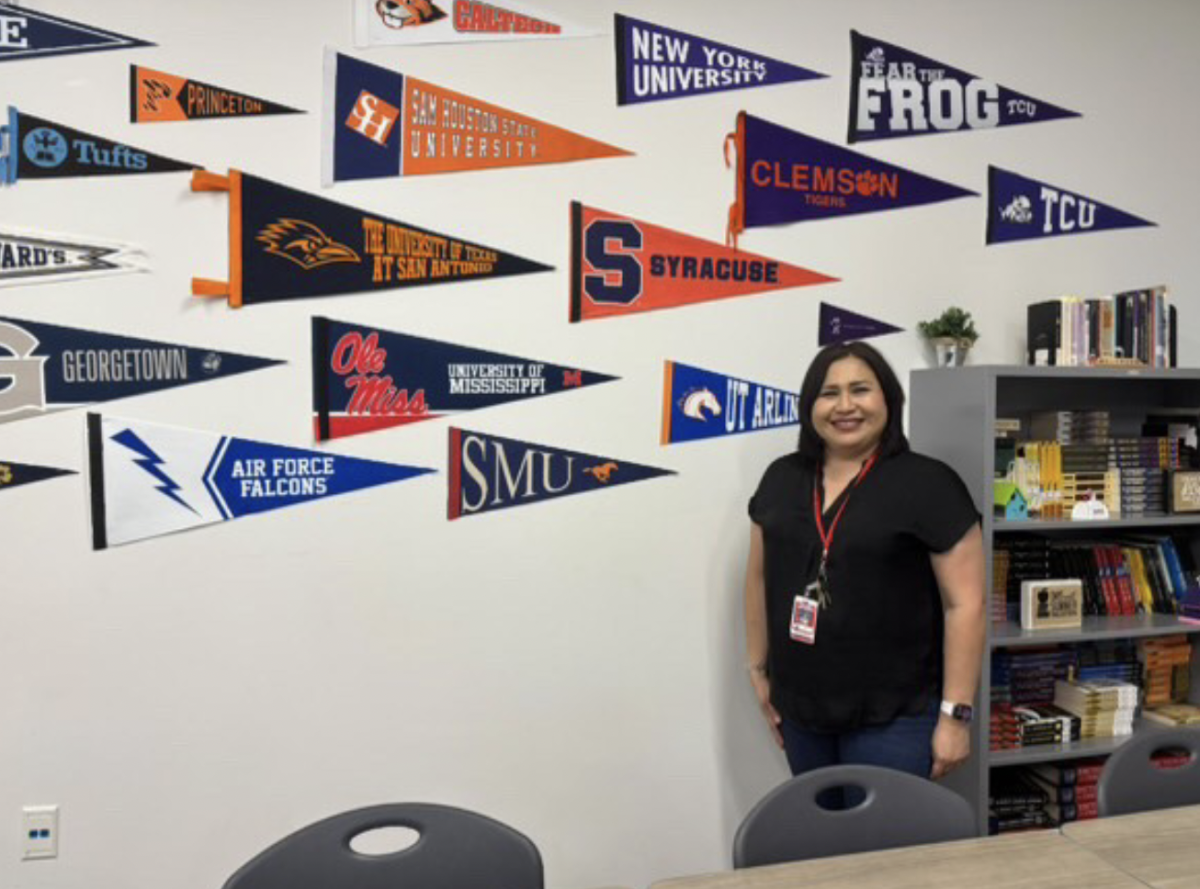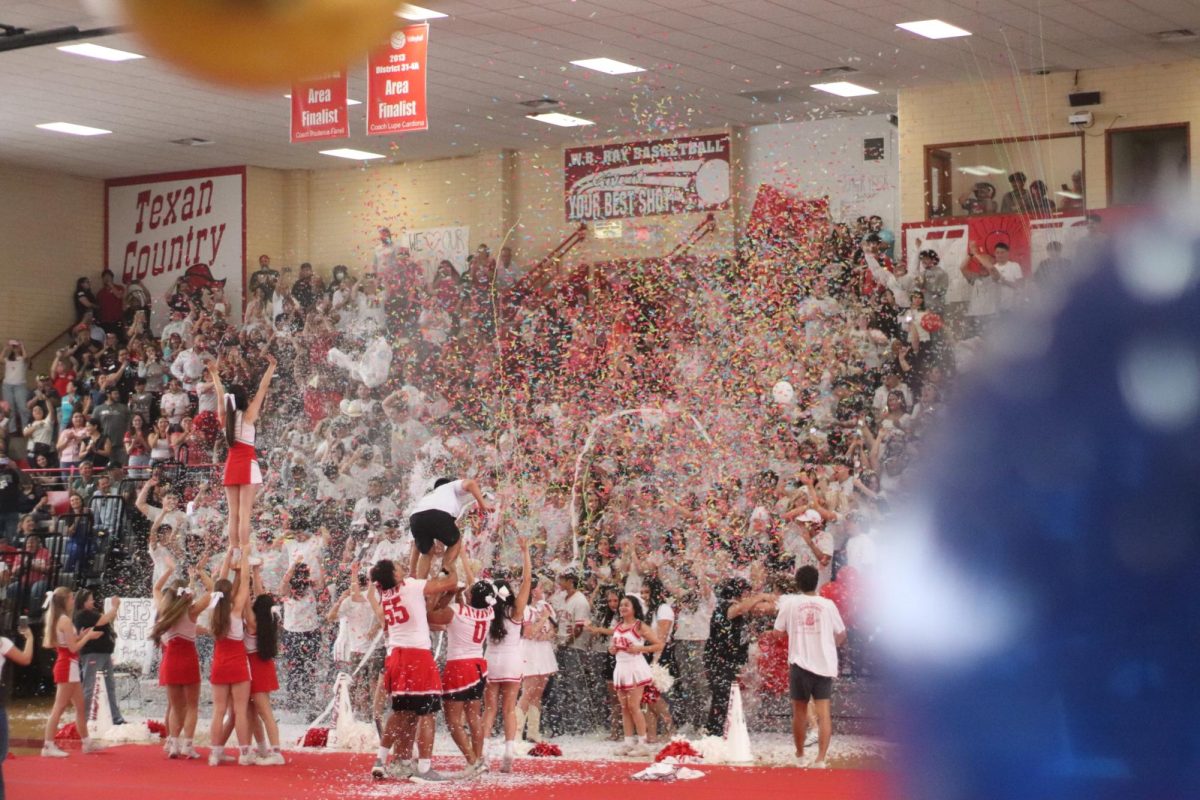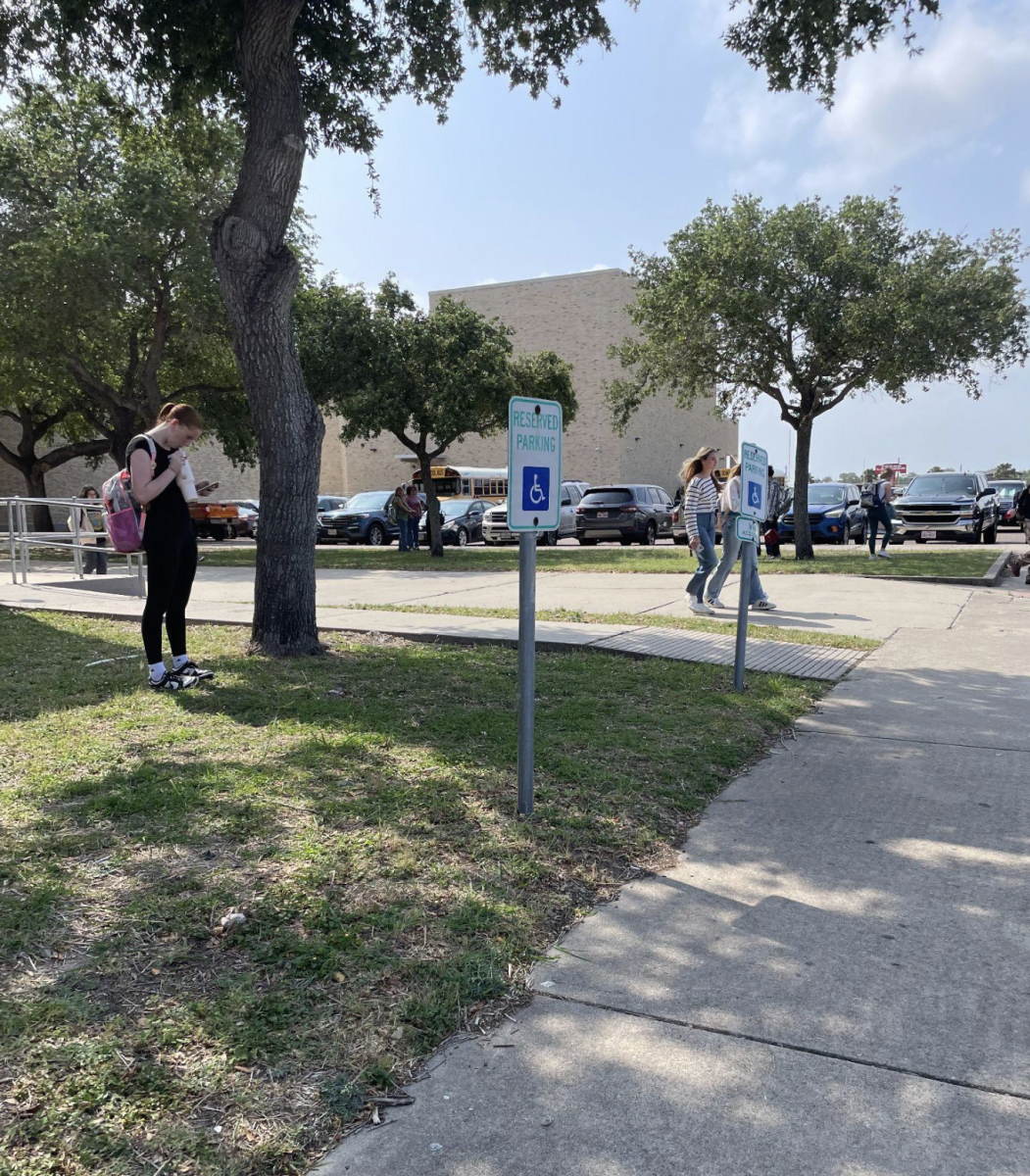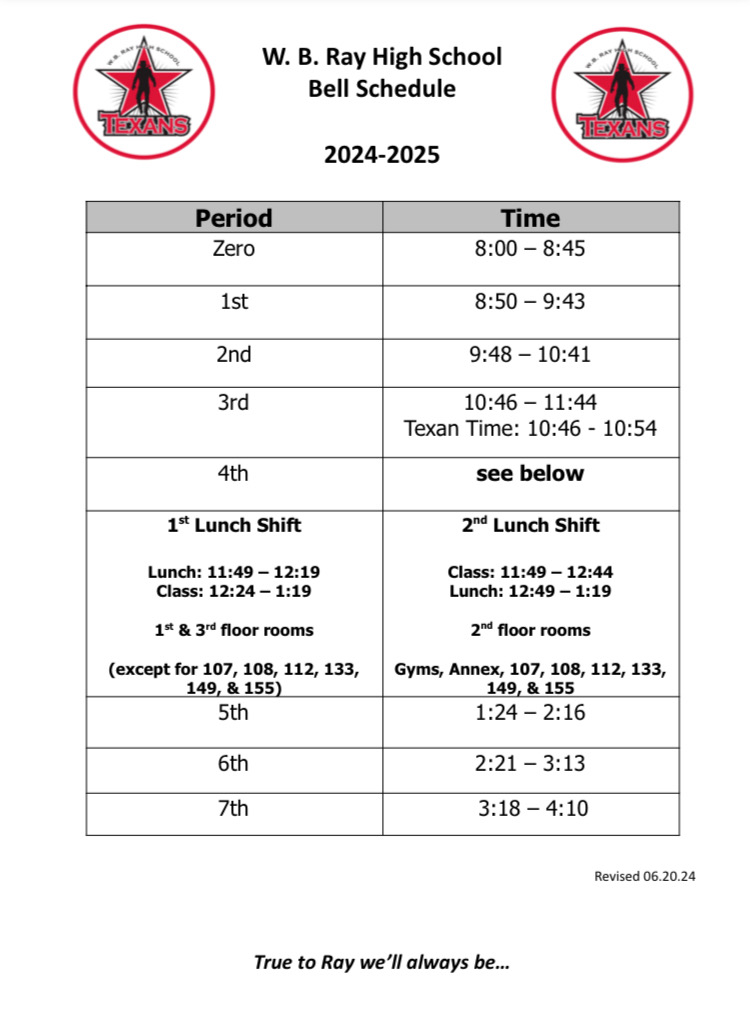On March 15, 20 students from Ray HS Theatre loaded up a U-Haul with costumes and set pieces, with only one goal in mind: putting on a show for OAP zone. Just the night before, we had completed the main part of our set — two grand doors center stage. It had taken us all week to put the set together and time the set up correctly. However, the right that the doors stood on had to be set up first, leaving very little time for us to secure the doors.
There was already a problem — and the competition hadn’t even started yet.
One-Act Play, abbreviated as OAP, is the biggest high school play festival in the world. It was created in 1927 and managed by UIL. The regulations for OAP are strict: no play shall exceed 40 minutes, set up and strike (removing all set pieces and props) must be completed in 7 minutes respectively, actors cannot be prompted on stage, amongst a laundry list of set requirements.
This meant students had to be quick and effective on stage, and carefully plan everything out so there are as few snags as possible.
The day of the competition, we took a short bus trip to Veterans Memorial HS, nervously chattering about how we thought the show would go.
Once we arrived, a group of technicians helped us unload the U-Haul and set our props in the appropriate places before leading us back to our holding room. It wasn’t long before we were called to the stage for our official rehearsal.
The official rehearsal is one hour long, and the way the time is used it up to the discretion of the director, with the only requirement being the set must be back against the wall by the end. Before rehearsing, we met the contest manager, Tasha Jones, and she talked to us for a brief moment before continuing on her way.
The first task was setting the set. This task was divided into smaller sections, and with all 20 of us working, it went quickly. Then, came the dreaded doors. My castmates and I stood at the front of the stage, watching as the assigned group carefully propped them up. Luckily, everything held.
We finished ahead of schedule and moved on to rehearsal. We spread across the auditorium and projected lines from the front of the stage, shifting down a spot every time it was someone’s turn. Then we ran lights and sound, making sure our technicians had everything ready.
After our official rehearsal, we went back to our holding room. This was free time. Some people ate, some played games, some ran lines.
When it hit 2 p.m., hair and makeup began. While the hair wasn’t necessarily difficult, with so many girls in the cast, hair took time. Each one’s hair was fishtail braided in some form, decorated with fake gold, sparkly tinsel, or anything else that looked regal. Makeup was simple, but bold – berry toned blush, vibrant lipstick, and lined eyes. Stage make-up is different from normal makeup, because it has to be able to be seen from the back of the auditorium, meaning everything had to be exaggerated.
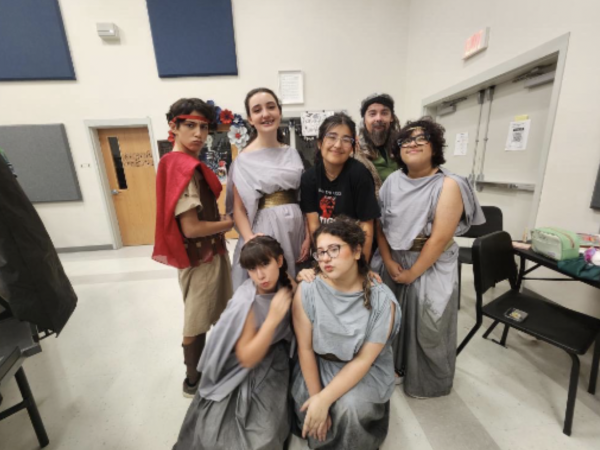
Once everyone was in costume and ready, we yet again waited until we were called to the stage. This time, everyone was running lines out of anxiety.
We got into a circle, smiling and closing our hands as we partook in a years-long tradition — “passing the pulse.” It was our show, and now we would perform it. We went to the stage, did our set up flawlessly on time, cued the contest manager, and got to our places in time for the show to start.
We performed “Antigone”, a Greek tragedy written by Sophocles for the Dinoysus Festival that occurred every year around springtime in Ancient Greece. In a way, it’s the sequel to a previous play, Oedipus, with the main characters all being related to him somehow and suffering the consequences of his actions. The story is about political corruption and tyrants, something incredibly relevant to today. It was an important story to tell, and I believe we did it justice.
After the show was over, we were taken back to the holding room. Now it was time to get ready for awards. Everyone quickly changed into their formal wear and cleaned out the holding room so we wouldn’t have to deal with it after the awards.
We sat close together in three rows, holding hands as we closed our eyes, hoping like every other school that we’d advance. In the end, we didn’t get top three, meaning we wouldn’t go on to the next stage of competition.
Although we didn’t advance, several of our cast and crew got awards: Sebastian Witherspoon achieved Best Tech, Mei Martinez was awarded All-Star Cast, Priscilla Mir and Langston Linscomb gained Honorable Mention All-star Cast. We went home disappointed of course, but we are determined to do better next year.
The show lived on for three more nights during the public showcase: April 2nd, 3rd, and 4th.
Every moment spent with the cast of this show was special, and although we didn’t end up winning, it was a wonderful experience, and we can’t wait to do it again next year!
